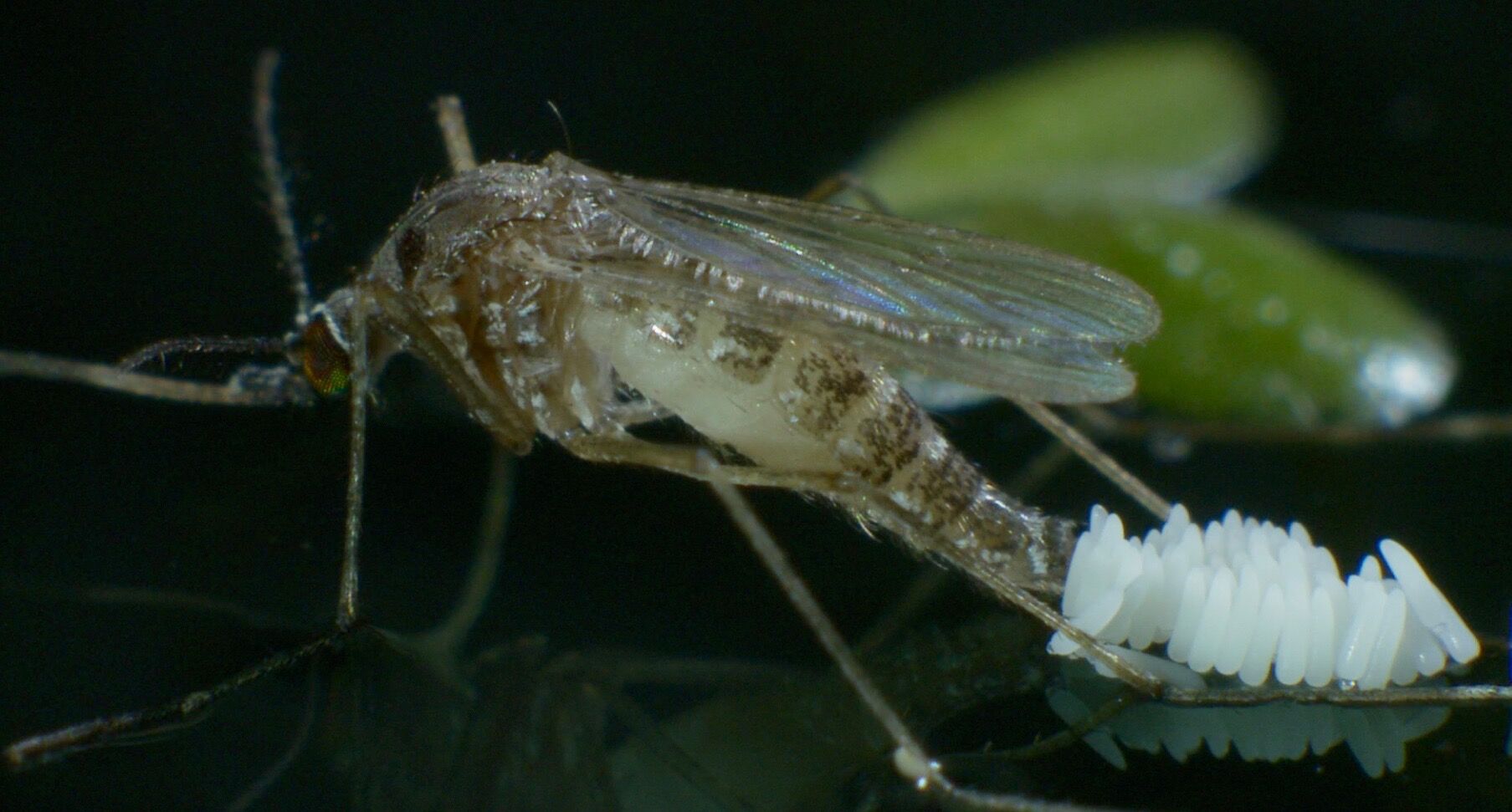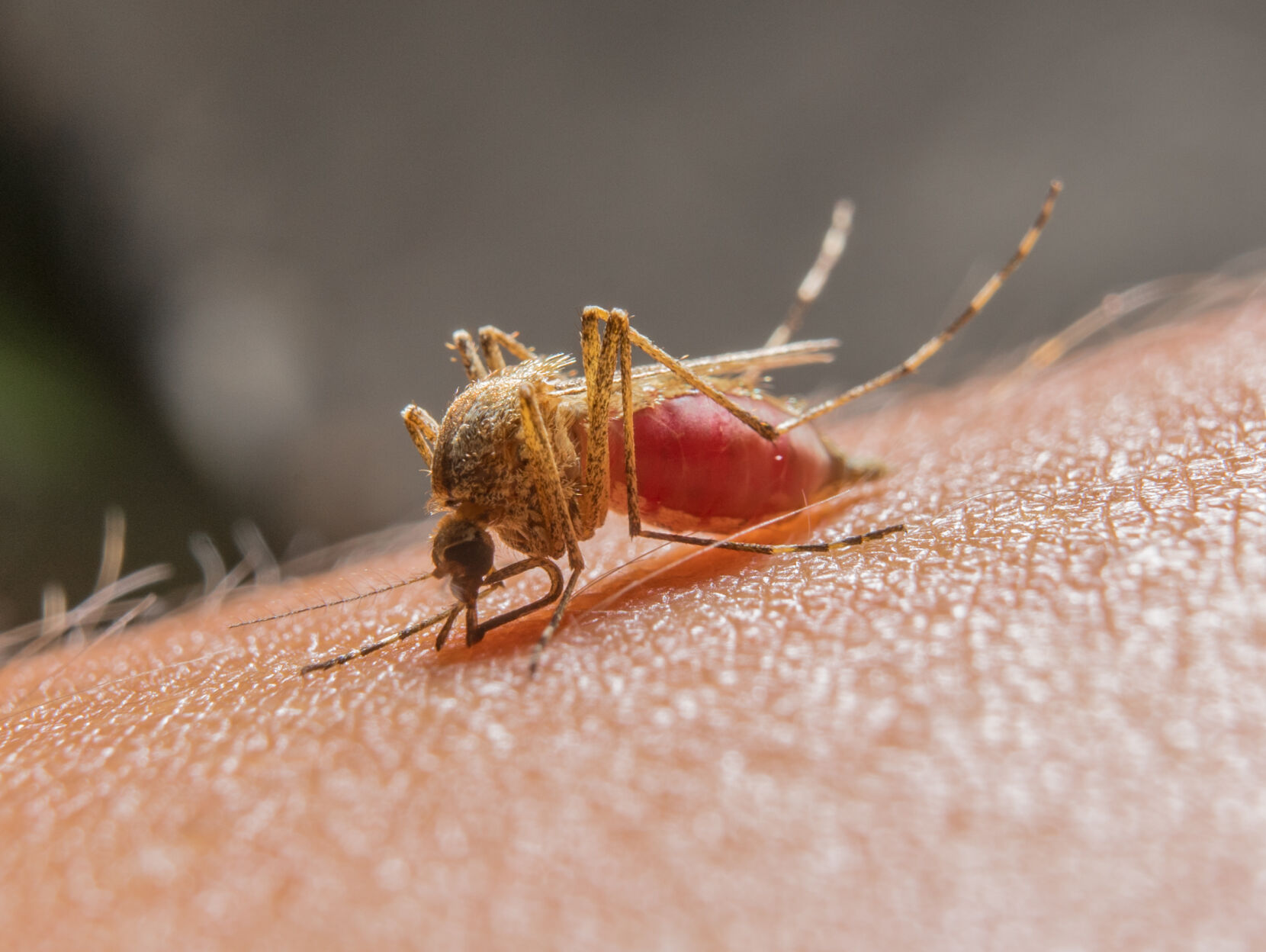Colorado’s first detection of West Nile Virus reported on eve of holiday weekend

Talk about holiday buzz kill.
The type of mosquito which carries the West Nile Virus is flourishing, thanks to Colorado’s record-setting wet spring and early summer, which was followed by warm temperatures. Culex mosquitoes are multiplying “like the fluffs on a dandelion head,” according to one Metropolitan State University biologist.
And on the eve of one of the most busy holiday weekend for outdoor fun, two county public health departments have detected the virus in testing pools during weekly, hyper vigilant surveillance.
On Friday, the Boulder County Public Health Department confirmed that Culex mosquitoes are alive and doing very well this season. The potentially virus-carrying species comprised 40-60% of the mosquito population collected.
On the heels of that information came particularly concerning news that the West Nile Virus was detected in a mosquito trap located near Erie.
Metropolitan State University biology professor Robert Hancock, aka the “Mosquito Man,” calls the weather patterns that allowed the Culex to thrive an “exponential situation.” The 40-year veteran of mosquito study said Colorado’s wet weather means “more and more adult mosquitoes have a much better chance to survive.” They usually can’t live for long in Colorado’s typically hot, dry summers.
Many of Boulder’s surveillance technicians are the Mosquito Man’s former students who get jobs through a Metro-Boulder County pipeline, Hancock said.
“They set the traps, bring the catch back to a lab and separate the Culex from other species where they are put into vials,” Hancock said.
Those vials are sent to the Colorado Department of Public Health and Environment to be tested for West Nile.
There have been no reports in Colorado of a human contracting the virus. That usually doesn’t happen until later in the summer.
“Typically, we see cases later in the year as the virus amplifies and the risk goes up,” said Lane Drager, consumer protection coordinator for Boulder’s health department.
With many Coloradans expecting to spend the July Fourth holiday outdoors, Boulder County officials are warning hikers, bikers and dog-walkers to protect themselves by wearing long sleeves and applying mosquito repellant.
“We are definitely concerned that this will be a bad season. We saw a lot of activity last year, and already the mosquito counts this year are very high,” Drager said.
West Nile found up north
The virus was also detected north of the metro Denver area. The Weld County health department found it in Culex mosquitoes in Zone 2, which includes the Johnston, Milliken, Platteville areas and in Zone 3, which includes Firestone, Dacono and Fort Lupton.
There are 200 species of mosquitoes in the United States, but the Culex is the only one in Colorado which carries West Nile. Drager said that it’s almost impossible for a layperson sitting on a back porch to be able to identify a Culex mosquito, but they’re detectable under a microscope.
Hancock agreed but said that when it’s magnified, one of the three Culex genuses is more beautiful than the other two.
“The Culex tarsalis has white dots on it,” he explained but noted that the others, Culex pipiens and Culex salinarius, are dull and drab.
17 cases
So far this year, the Centers for Disease Control and Prevention reports 17 cases of the virus in humans. Arizona leads the nation with seven, Georgia has reported two and Oregon, Wyoming, South Dakota, Nebraska, Iowa, Missouri, Louisiana and South Carolina reported one case each.
Colorado may catch up, though, especially since the weather has been so favorable for mosquito populations. Last year, Colorado had the most West Nile cases in the country with 204. Eighteen Coloradans died from the virus. In 2021, Colorado had the second-most cases of any state.
Typically, some Colorado communities are less likely to see West Nile Virus than others.
Haley Zachary, Communicable Disease program manager with El Paso County Public Health said the disease doesn’t often hit hard there.
She stressed that the fact West Nile has been detected in two Colorado regions isn’t cause for panic.
“The vast majority of people who get bit don’t experience symptoms at all and one-in-five will get a slight illness but it’s really only a small percentage. Less than 1% of those people come down with a serious illness,” said Zachary.
What West Nile Virus does to humans
Symptoms can include fever, headache, joint pains and fatigue which can last for months.
The Centers for Disease Control reports that only one in 150 people exposed to the virus will develop more severe symptoms which can range from inflammation of the brain to meningitis. People over 60 are at greatest risk, as are those who suffer from diseases like cancer, diabetes, kidney disease and those who have received transplants.
There is no vaccine for the virus and antibiotics won’t kill it.
Rest, fluids and over-the-counter pain medications are recommended to relieve lighter symptoms, according to the CDC.
Most West Nile Virus cases are reported in August and September, according to the Colorado Department of Public Health and Environment.
“Typically we see cases later in the year as the virus amplifies and the risk goes up,” said Drager.
According to the Climate Central, a national research institute which tracks mosquito weather trends, the Western United States has an average of 132 mosquito days – which is 36% of the year.
Birds transmit the infection to mosquitoes which in turn infect humans. Hancock said the Culex mosquito can make up to 200 offspring from a single blood feed. Not all of them survive from larvae, but he said “it creates a curve which gets steeper and steeper.”
Protection against mosquitos
With the amount of Culex mosquitoes showing up at alarming levels and months of unpredictable swarms ahead, public health officials are cautioning Coloradans to protect themselves.
Drager offers “The Four D’s” to stay safe
- Deet – use insect repellant, preferably containing Deet, to ward off potentially dangerous or pesky mosquitoes. Repellants which contain Picaridin, IR3535, oil of lemon eucalyptus or para-menthane-diol products are also acceptable.
- Dress – when you’re outside, wear long sleeves and pants.
- Dusk and dawn – be most proactive at these times when mosquitoes are most likely to feed … on you!
- Drain – drain standing water around your home where mosquitoes lay eggs and breed. The annoying insects can inhabit anything from a big can holding water to an outdoor pool, rain gutters and irrigation ditches.
For July Fourth weekend, Zachary added one easy tip for grillers.
“Consider having your barbecue a little earlier in the day,” she advised.













